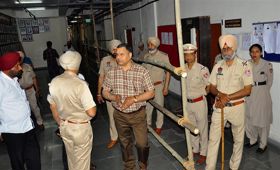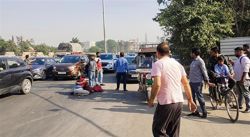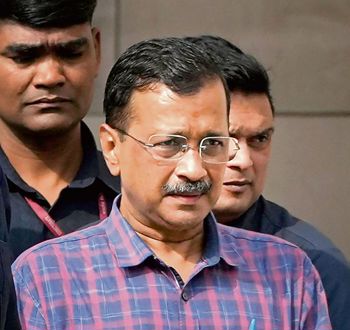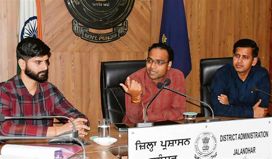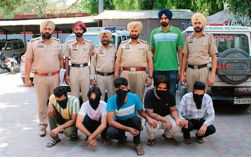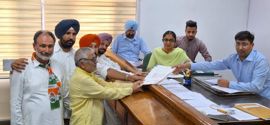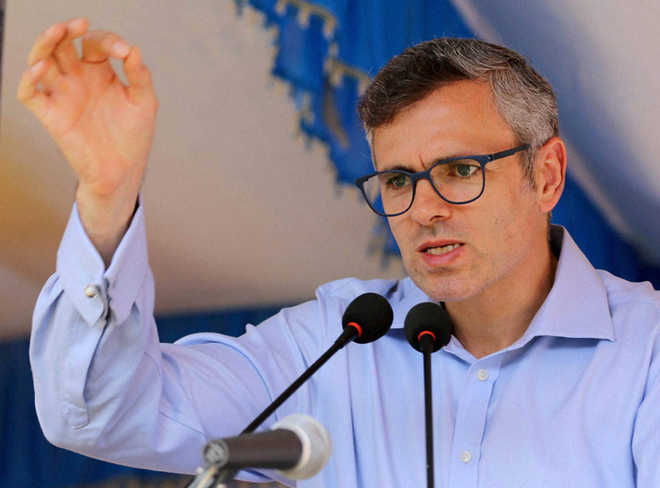
Azhar Qadri
Tribune News Service
Srinagar, April 22
Former Chief Minister Omar Abdullah claimed militancy in Kashmir is “no longer an indigenous uprising” and that Pakistan had turned the part of the state under its control into an “extension of China”.
Omar, in his speech at the University of California, Berkeley, earlier this week, stated the militancy began as a “purely indigenous uprising for a political settlement of the problem of Jammu and Kashmir”. “It has since then changed and converted… it is no longer an indigenous Kashmiri uprising,” he said.
The former Chief Minister, who governed the state from 2009 to 2014, said the bulk of people fighting are from Kashmir, “but from the last count we had about 16 or 18 nationalities of people caught or killed in Jammu and Kashmir”.
“We had people from Pakistan, Afghanistan, Bosnia, Chechnya, Sudan, the United Kingdom and a few other countries that I wouldn’t list out here,” he said, while speaking at the university where he was invited to talk about the “way forward” on the Kashmir issue.
Omar also warned of the introduction of “elements of religious struggle”, highlighting the recent cases of Muslim youth from Telangana and Assam joining militant ranks in Kashmir.
“(They) came to Jammu and Kashmir to become a part of the militant uprising, not because of the political struggle but because of an identification of themselves as part of the Muslim struggle that needs to be waged,” he said and described it as a “very significant change”, warning that he believed it would have “grave implications”.
Omar, who also served as the Union Minister of State for External Affairs in 2001-02, said the Kashmir problem had an internal and an external dimension. “The external dimension includes Pakistan,” he said.
Omar also claimed that Pakistan advocated independence for Kashmir but had made the “part of Kashmir under its control an extension of China”. “The truth is that they have been responsible for the lion’s share of the problem and destruction in Jammu and Kashmir,” he said.
He said some people were being “overly ambitious and overly emotional” in thinking that the part of Kashmir under Pakistan control would be reclaimed.
“Even with the gravest of provocation which we had during Kargil, where we fought a war in 1999, the sanctity of the Line of Control was respected by the Indian forces… so if that time we decided to respect the sanctity of the Line of Control, haven’t we somewhere decided this is the way it is and we move forward from here?” he questioned.
Omar said one of the ways to move forward is to “sit with Pakistan and once and for all address this issue”. He said the “friends in the right places” can facilitate this process between India and Pakistan and “try and address some of the suspicions that we have”.
He said India and Pakistan had come “incredibly close” during Pakistani dictator General Pervez Musharraf’s time to settle the Kashmir issue. “I guess time ran out for us because it took us so long to put aside the suspicion of General Musharaf as the architect of the Kargil war. By the time we realised we can do business with him, he wasn’t nearly as powerful as we needed (him to be),” he said.
Omar said his party would want the clock to be turned back “to pre-1953 position”, a reference to the demand of restoration of autonomy.
“The internal part of the problem is equally tricky. We need to restore the autonomous position to the full extent possible,” he said.
He further said Jammu and Kashmir would continue to have a military presence “regardless of whether we have militancy in Jammu and Kashmir or not, so long as China and Pakistan are militarised”.
Omar, however, batted for a reduction in the footprint of security forces and “a fresh look at laws” like AFSPA and the “impunity that it gives to security forces”.
He also claimed that there have been “incidents of grave human rights violations that haven’t been adequately addressed”. “We need to rebuild people’s trust in institutions. They don’t have much faith in electoral systems, they don’t have much faith in the institutions of democracy, they don’t have faith in the police and its ability to provide justice,” he said.





















